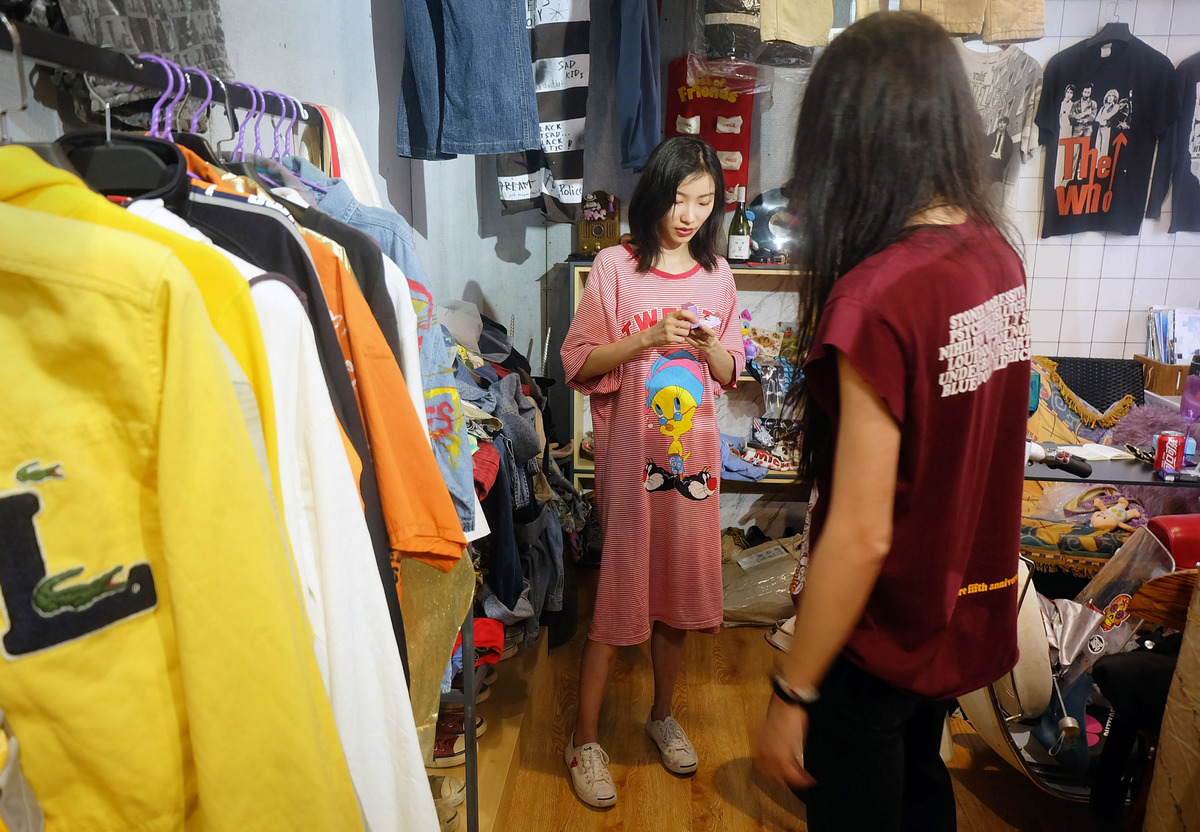Apps, consumption upgrade create $142b market for used goods


HANGZHOU-China's used goods market continues to thrive as more young Chinese cast away old thinking of rejecting second-hand stuff and embrace online platforms that offer decent value at cheaper prices.
The China Center for Internet Economy Research predicted that transactions for used goods in the country are expected to exceed 1 trillion yuan ($142 billion) this year.
Rising disposable incomes of Chinese consumers and improved convenience in tech-enabled shopping have stimulated massive growth in consumption.
Goods bought on impulse but seldom used, and existing goods made redundant by consumption upgrade, have now become new consumable items.
With the emergence of an increasing number of apps that peddle used goods in recent years, more and more customers have jumped on the second-hand economy.
"I usually buy and sell baby accessories and electronic products on Idle Fish," said Yang Xia, a mother of two. "Kids grow so fast, leaving many toys and clothing unused, but they are too new to be abandoned. Through Idle Fish, that stuff can reach new owners, while sellers can also get some money. It's a win-win business."
Idle Fish, or Xianyu, is a secondhand mobile marketplace spun off from Alibaba's Taobao. Established in 2014, the digital flea market has become one of the largest online trading platforms for used goods, from household appliances to cosmetics.
"At present, the number of Idle Fish users has exceeded 200 million, with more than 20 million active users every day. Over 1.4 billion items have been listed on the platform," said Chen Lei, CEO of the platform.
Apart from trading in goods, newer forms of goods exchange have arisen from the second-hand market to meet people's diversified demands, including recycling, donations, borrowing and old-for-new barter.
Idle Fish data showed that, in 2019, the platform recycled 3 metric tons of used clothes, 9.4 million books, 1.2 million mobile phones and 508,500 home appliances.
Meanwhile, about 30,000 users donated over 100,000 clothes to eight provinces and cities in 2019 through the platform. Donation from Idle Fish even reached impoverished children in Laos.
The second-hand book market has also seen a rise as certain book applets, or mini programs, sprang up and became popular among the youth.
"Although more and more people have turned to e-books in this era, I still prefer paper books, which always remind me of the original reading experience of my childhood," said Wu Yin, a white-collar worker in the city of Hangzhou, capital of East China's Zhejiang province.
Wu has been sending old books to Manyoujing, one of the most fashionable second-hand book platforms online, where she can sell her books and earn coupons to "buy" new books.
"Sending away old books for new ones saves the space on the bookshelf and helps me gain new knowledge," Wu said.
Wang Depei, from the China Society of Economic Reform, said the boom in the second-hand economy is due to Chinese consumers' upgraded consumption.
In the future, this kind of economy has broad room for growth as it can be expanded to more intangible sources such as time and space.




































